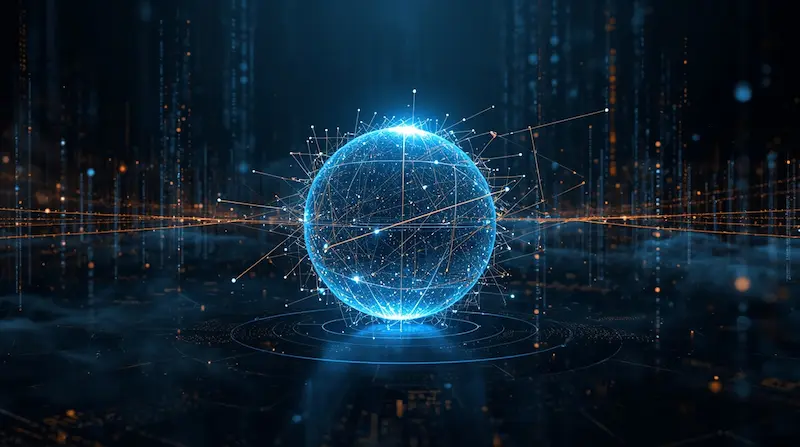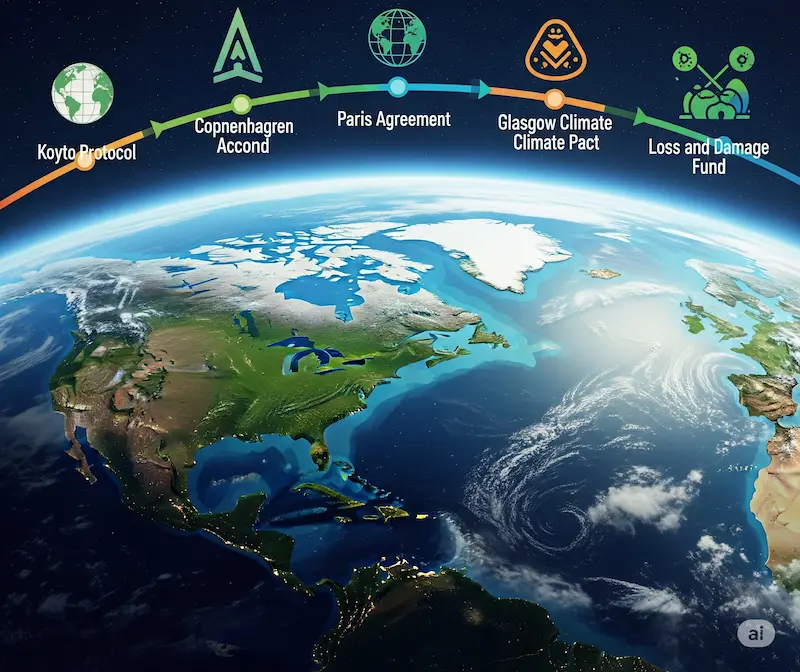Quantum Computing क्या है? भविष्य की एक आसान समझ और विशेषज्ञ गाइड
आपने शायद फिल्मों में या science articles में Quantum Computing के बारे में सुना होगा, पर क्या आपको पता है कि यह हमारे भविष्य को कैसे reshape कर सकता है? क्या यह सिर्फ एक fancy idea है, या यह हमारे daily life में एक real game-changer बनने वाला है?
आज की दुनिया में, हम traditional computers का इस्तेमाल करते हैं, जो bits पर काम करते हैं—या तो ‘0’ या ‘1’। ये बहुत powerful हैं, लेकिन कुछ problems इतनी complex होती हैं कि दुनिया के सबसे fastest supercomputers को भी उन्हें solve करने में millions of years लग सकते हैं। For example, नई medicines को design करना, climate change के patterns को predict करना, या financial markets के complex data को analyze करना।
लेकिन Quantum Computing एक completely new paradigm है। यह एक car से flying machine पर shift होने जैसा है। यह न सिर्फ तेज है, बल्कि एक अलग तरीके से काम करता है।
इस detailed guide में, हम एकदम simple language में समझेंगे कि Quantum Computing क्या है, कैसे काम करती है, इसके applications क्या हैं, और भारत इस race में कहाँ खड़ा है। इस आर्टिकल को पढ़ने के बाद, आपके सारे doubts clear हो जाएँगे और आप एक expert की तरह इस topic पर बात कर पाएंगे।
1. Quantum Computing क्या है? Classical vs. Quantum
Quantum Computing, Quantum mechanics के सिद्धांतों का इस्तेमाल करके calculations करती है। Quantum mechanics, physics का वो branch है जो atoms और subatomic particles के behavior को explain करता है। यही चीज़ Quantum Computing को हमारे normal computers से अलग बनाती है।
Classical Computers
हमारे phones, laptops और servers, सभी classical computers हैं। ये bits पर काम करते हैं। एक bit एक switch की तरह है, जो या तो ‘on’ होता है (represented as 1) या ‘off’ होता है (represented as 0)। एक बार में, एक bit सिर्फ एक ही state में हो सकता है। यह problems को sequentially solve करता है—यानी एक-एक करके।
Quantum Computers
दूसरी तरफ, Quantum Computers qubits (Quantum बिट्स) का इस्तेमाल करते हैं। Qubits के पास कुछ unique properties होती हैं, जो उन्हें classical bits से कहीं ज्यादा powerful बनाती हैं।
आइए, इन properties को simple examples के साथ समझते हैं:
1. Superposition: Imagine कीजिए कि आप एक coin को flip करते हैं। जब तक वह हवा में घूम रहा है, तब तक वह एक साथ heads और tails दोनों state में होता है। यही Superposition है। Qubits भी इसी तरह, ‘0’ और ‘1’ की दोनों states में एक साथ exist कर सकते हैं। जब तक आप qubit को measure नहीं करते, तब तक वह दोनों states में रहता है। यह capability एक साथ कई calculations करने की power देती है।
2. Entanglement: Entanglement एक Quantum phenomenon है जिसमें दो या दो से ज्यादा qubits एक दूसरे से इस तरह से जुड़ जाते हैं कि एक qubit की state को measure करने पर, दूसरे qubit की state instantly पता चल जाती है—no matter how far they are from each other. Albert Einstein ने इसे “spooky action at a distance” कहा था। यह connection qubits को आपस में cooperate करने की एक incredible power देता है।
यह table classical bits और Quantum qubits के बीच के main difference को explain करता है:
| Feature | Classical Bits | Quantum Qubits |
|---|---|---|
| State | 0 या 1 | Superposition of 0 और 1 (दोनों state एक साथ) |
| Working | sequentially (एक-एक करके) | Parallelly (एक साथ कई calculations) |
| Key Principle | Binary Logic | Superposition & Entanglement |
2. Quantum Computing क्या है: दुनिया को बदलने की क्षमता
Quantum Computers की power का इस्तेमाल उन problems को solve करने में किया जाएगा जिन्हें आज के computers handle नहीं कर सकते।
दवा और स्वास्थ्य विज्ञान में क्रांति
- Problem: आज नई medicines बनाना बहुत time-consuming और expensive process है। Scientists को लाखों molecules की properties को analyze करना पड़ता है।
- Quantum Solution: Quantum कंप्यूटर molecules और chemical reactions को extremely high precision के साथ simulate कर सकते हैं। इससे दवाइयों के design और testing का process बहुत तेज हो जाएगा।
- Real-world example: IBM और Moderna ने मिलकर एक Quantum computer का इस्तेमाल करके mRNA molecules के सबसे लंबे patterns को analyze किया है।
AI और Machine Learning को supercharge करना
- Problem: AI models को train करने के लिए massive amounts of data की जरूरत होती है।
- Quantum Solution: Quantum कंप्यूटर इस huge data को faster analyze कर सकते हैं, जिससे AI models को train करने में लगने वाला time काफी कम हो जाएगा और उनकी accuracy बढ़ेगी।
- Expert Insight: IBM के CEO अरविंद कृष्ण का मानना है कि AI और Quantum Computing एक साथ मिलकर ही अगली बड़ी breakthrough लाएंगे।
फाइनेंस और Logistics में optimization
- Problem: एक airline के लिए सबसे efficient flight route plan करना या किसी supply chain के लिए shortest path खोजना बहुत complex mathematical problems हैं।
- Quantum Solution: Quantum कंप्यूटर optimization problems को solve करने में best हैं। वे इन problems के लिए fastest solutions ढूंढ सकते हैं।
जलवायु विज्ञान और environmental research
- Problem: Climate change के complex patterns को accurately predict करना और नए materials design करना जो carbon capture में मदद कर सकें, आज के computers के लिए बहुत मुश्किल है।
- Quantum Solution: Quantum कंप्यूटर इन complex simulations को run कर सकते हैं, जिससे climate change को बेहतर ढंग से समझा जा सकेगा और उसके लिए solutions ढूंढे जा सकेंगे।
“Quantum Computing सिर्फ एक तेज कंप्यूटर नहीं है, बल्कि एक entirely new computational paradigm है जो उन समस्याओं को हल करने की क्षमता रखता है जो आज की technology की पहुंच से बाहर हैं।”
3. वर्तमान स्थिति, चुनौतियाँ और प्रगति
आज Quantum Computing अपनी शुरुआती stage में है, जिसे “Noisy Intermediate-Scale Quantum” (NISQ) era कहा जाता है। इसका मतलब है कि आज के Quantum computers में qubits की संख्या कम है और वे errors के प्रति sensitive हैं।
प्रमुख चुनौतियाँ
Quantum Computing की road to commercial success में कई बड़ी challenges हैं:
- डिकोहेरेंस (Decoherence): Qubits की delicate Quantum state को maintain करना सबसे बड़ी challenge है। External factors, जैसे temperature या radiation में minor changes भी qubit की state को disturb कर सकते हैं।
- त्रुटि सुधार (Error Correction): Quantum calculations में छोटी सी गलती भी पूरे result को unusable बना सकती है। Reliable error correction techniques develop करना बहुत जरूरी है।
- स्केलेबिलिटी (Scalability): Practical problems solve करने के लिए millions of stable qubits की जरूरत होगी। आज के computers में qubits की संख्या अभी इस goal से बहुत दूर है।
- लागत और रखरखाव: Quantum Computers को बनाना और maintain करना बहुत महंगा है। उनके complex cooling systems के कारण वे अभी आम इस्तेमाल के लिए affordable नहीं हैं।
- प्रतिभा की कमी: Quantum Computing के field में skilled professionals की कमी है। McKinsey की report के अनुसार, 2025 तक आधे से भी कम quantum jobs fill हो पाएंगी।
हालिया प्रगति
इन challenges के बावजूद, इस field में लगातार progress हो रही है:
- Error Correction में सफलता: QuEra के scientists ने हाल ही में “magic state distillation” नामक एक process का demonstration किया है। यह fault-tolerant Quantum computers बनाने की दिशा में एक major step है।
- Hardware Innovation: कनाडा की startup Nord Quantique ने एक qubit design develop किया है जिसमें built-in error correction है।
- क्लाउड और वर्चुअल मशीनें: कोलंबिया इंजीनियरिंग के researchers ने HyperQ नामक एक system बनाया है जो multiple users को एक ही Quantum processor को एक साथ share करने देता है। इससे Quantum Computing तक access आसान हो जाएगा।
- प्रमुख कंपनियां और क्यूबिट्स: IBM का लक्ष्य 2029 तक 200 logical qubits के साथ एक fault-tolerant machine बनाना है, जबकि Google ने अपने Willow chip के साथ 105 qubits का demonstration किया है।
यह साफ है कि major companies इस technology में huge investments कर रही हैं।
4. डेटा सुरक्षा का भविष्य: Quantum खतरा और समाधान
Quantum Computing का सबसे बड़ा खतरा हमारी today’s data encryption systems पर है। Shor’s Algorithm जैसे Quantum algorithms में today’s encryption methods को break करने की क्षमता है।
Quantum खतरा: “Harvest Now, Decrypt Later”
यह सिर्फ एक future concern नहीं है, बल्कि एक real threat है। Malicious actors आज encrypted data को steal करके store कर सकते हैं, इस उम्मीद में कि future के powerful Quantum computers से वे इसे decrypt कर पाएंगे।
समाधान: Post-Quantum Cryptography (PQC)
इस threat से लड़ने के लिए, दुनिया भर की companies और governments Post-Quantum Cryptography (PQC) develop कर रही हैं। यह नए encryption algorithms हैं जो Quantum attacks का भी सामना कर सकते हैं।
- NIST (National Institute of Standards and Technology) जैसे organizations PQC standards को finalize कर रहे हैं।
- Google ने 2016 से PQC की testing शुरू कर दी है।
- Apple ने PQ3 नामक एक post-quantum cryptographic protocol introduce किया है।
- भारत का C-DOT भी PQC solutions पर काम कर रहा है, जो national security के लिए बहुत important हैं।
5. भारत की Quantum Computing में भागीदारी
भारत इस technological race में पीछे नहीं है और Quantum Computing को एक strategic priority मानता है।
राष्ट्रीय Quantum मिशन (NQM)
भारत सरकार ने 8 years के लिए ₹6003.65 Crore के budget के साथ राष्ट्रीय Quantum मिशन (NQM) को approve किया है। इसका main goal scientific research, innovation और Quantum technologies में global leadership हासिल करना है। यह mission ‘Digital India’, ‘Make in India’, और ‘आत्मनिर्भर भारत’ जैसी national initiatives को support करेगा।
अमरावती Quantum वैली (Amaravati Quantum Valley)
आंध्र प्रदेश में एक ambitious project, Amaravati Quantum Valley, IBM, TCS और L&T के साथ partnership में develop किया जा रहा है। यहाँ भारत का सबसे powerful Quantum computer, IBM Quantum System Two (156 qubits) install किया जाएगा। इस initiative का aim 2030 तक 5,000 experts को train करना और ₹8,571 Crore का investment attract करना है।
6. निष्कर्ष: Quantum Computing का भविष्य
Quantum Computing का सफर अभी शुरू ही हुआ है, लेकिन इसके potential applications revolution ला सकते हैं। “Quantum Advantage” वह point है जब एक Quantum computer किसी problem को traditional computer की तुलना में बेहतर या तेज solve कर सकता है। IonQ के blood-pump simulation और Quantinuum की certified randomness जैसे शुरुआती examples में इसके hints मिल चुके हैं।
यह clear है कि Quantum computers हर problem को solve नहीं करेंगे और वे traditional computers को replace नहीं करेंगे। वे उनके साथ एक complementary technique के रूप में काम करेंगे, जहाँ दोनों technologies मिलकर most complex problems को tackle करेंगी।
इस technology की पूरी potential को unlock करने के लिए, talent development, global collaboration और innovation बहुत जरूरी हैं।
Key Takeaways:
- Quantum कंप्यूटर qubits पर काम करते हैं, जो superposition और entanglement का इस्तेमाल करके समानांतर गणनाएँ करते हैं।
- वे दवा, AI, finance और climate science जैसे fields में revolutionary changes ला सकते हैं।
- इस तकनीक की main challenges में decoherence, error correction, और scalability शामिल हैं।
- PQC (Post-Quantum Cryptography) quantum threats से data को secure करने का समाधान है।
- भारत, NQM और Amaravati Quantum Valley जैसी initiatives के साथ इस field में actively participate कर रहा है।
Did this article help you? Share it with someone who’ll benefit too.
FAQ Section: आपके सवालों के जवाब
A: फिलहाल, नहीं। Quantum कंप्यूटर बहुत महंगे और जटिल होते हैं। लेकिन cloud platforms जैसे AWS Braket और Microsoft Azure इस technology को developers और businesses के लिए accessible बना रहे हैं, जिससे उन्हें अपनी research और projects में इसका इस्तेमाल करने का मौका मिल रहा है।
A: Quantum कंप्यूटर्स general-purpose tasks जैसे email, spreadsheets, या web browsing के लिए suited नहीं हैं। वे specific, complex calculations के लिए designed हैं। Traditional computers इन daily tasks को ज्यादा efficiently और cost-effectively handle करते हैं।
A: ‘Physical qubits’ actual hardware units हैं जो Quantum calculations करते हैं। ये noise और errors के प्रति बहुत sensitive होते हैं। ‘Logical qubits’ कई physical qubits का एक group होता है, जिसे error correction algorithms के साथ combine करके एक reliable और error-free qubit बनाया जाता है। ‘Logical qubits’ ही useful calculations के लिए जरूरी हैं।
A: Quantum supremacy या advantage वह point है जब एक Quantum computer किसी specific problem को solve करने में today’s most powerful classical supercomputer से बहुत तेज और efficient होता है। Google ने 2019 में Sycamore chip के साथ 200 seconds में एक problem solve करके यह milestone achieve किया था, जिसे classical supercomputer पर 10,000 years लगते।
A: भारत ने राष्ट्रीय Quantum मिशन शुरू किया है जिसका उद्देश्य Quantum Computing ecosystem बनाना है। इसमें research and development, skilled workforce training, और Quantum technologies के लिए infrastructure build करना शामिल है। Amaravati Quantum Valley जैसी initiatives इसी vision का हिस्सा हैं।







